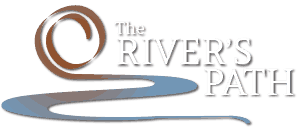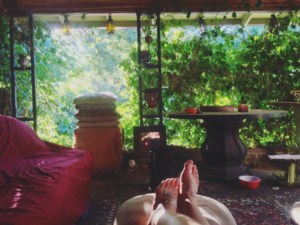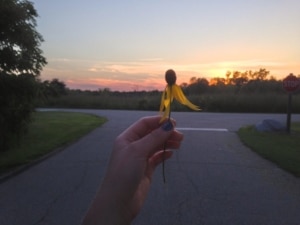How much of your life do you spend in the present? For many of us, practicing mindfulness by appreciating the present is a difficult and rarely enjoyed feat. Whether we’re planning tonight’s dinner, coordinating pick up times for the kids’ extracurricular activities throughout the week, or booking a vacation for winter break—our To-Do Lists often take us out of present and into the future.
While looking ahead can be healthy—and oftentimes necessary—the more time we spend planning, fantasizing, and waiting for the future to arrive, the less time we have to enjoy the gifts of the present. How do we know when to focus on what lies ahead, and when to sit back and enjoy the view? When can we let go and “be where our feet are”?
A Healthy Focus on the Future
Visualization is a powerful tool that we can use to align our mindset with the path to achieving our goals. We use visualization when we draw inspiration from the world around us and motivate ourselves to reach higher. Career planning is a good example. When we face a career transition and need to reevaluate our career goals, we can use visualization to narrow our focus after visualizing a new career: What salary would feel most comfortable? What type of work environment would foster the greatest personal and professional growth? What degree of flexibility would allow us to achieve our ideal work/family balance?
Logistical planning is the vehicle that drives us to our goals. Visualization naturally leads us to the reality of goal achievement: What do we have to take care of in the short term to reach our desired outcome? Logistical planning includes household budgeting to achieve financial goals, weekly menu planning to achieve health goals, and social coordination to fulfill our emotional needs by making family, friend, and romantic time possible.
Blinding Ourselves to the Present
Dwelling is a favorite pastime for many of us. Whether we are reminiscing about last summer’s vacation, a failed relationship, or struggling with anxiety for what the future holds, dwelling occurs when we spend unhealthy amounts of time disregarding the present. How do we determine what is considered “unhealthy”? If we are dwelling so frequently and so intensely that it causes mental or emotional destruction—such as depression, anxiety, loss of friendships and relationships, or hindrance of a career or professional growth—then the dwelling has become unhealthy.
Ignorance, in the case of this article, is defined as intentionally or unintentionally disregarding, ignoring, or blocking out the present. Ignorance takes on many forms that we may not even recognize. Blocking out the negative realities of any situation—be they political, environmental, or personal—blinds us to both the good and the bad in our lives. Without acknowledging the negatives, we can neither resolve them nor build up the positives.
Ignorance also takes form in ingratitude. When we forget or refuse to show gratitude for the good around us, we blind ourselves to a wealth of simple joys. A good example of this is when we get stuck in the mindset that our lives are boring. When we adopt this attitude, we automatically ignore the exciting things happening around us: If we convince ourselves that life is boring, we cannot embrace the exciting possibilities of new friendships (and new growth in old friendships!), trying new restaurants, exploring new parks, and developing new hobbies.

It can be tempting to speed down the road to the future, but don’t forget to enjoy the view during the ride there!
Sitting Back and Enjoying the View
Visualization and logistical planning are necessary for us to conceive of and achieve our goals. Even dwelling and ignorance have their places in our lives in times of grief, transition, and trauma: They help us process difficult information when we are under stress. But when we let them take over our lives, we can no longer enjoy the view of the present.
Expressing gratitude for even the simplest things can have a profound impact on our lives, and the scientific research on gratitude and mindfulness is plentiful. Next time you find yourself sprinting toward the future, challenge yourself to take a look around and spend some time being where your feet are—the view is beautiful!









